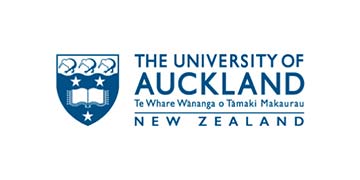University of Auckland: Sir Peter Gluckman president of International Science Council
An internationally recognised biomedical scientist, former Chief Science Advisor to the New Zealand Prime Minister and recently retired chair of the International Network for Government Science Advice, Sir Peter assumes the leadership from outgoing president Daya Reddy, who was elected at the first ever General Assembly of the ISC in 2018.
He was selected as president-elect during that 2018 General Assembly.
On becoming president, Sir Peter underlined that the global challenges facing societies today require a strong global voice for science, one that is closely engaged with active scientists and with policy communities.
“Science is crucial to many challenges we face including Covid-19, climate change, rapid technology development, mental health and widespread social change. I thank Daya Reddy and the ISC’s foundation Governing Board for the extraordinary progress the new organisation has already made,” he says.
“We will continue to accelerate momentum to ensure that we clearly project a global voice for science through better engagement with the scientific and global policy communities and wider publics. Science can and must make a difference in ensuring a better world.”
Sir Peter is the director of Koi Tū: The Centre for Informed Futures at the University of Auckland. From 2009-2018 he was first Chief Science Advisor to the Prime Minister of New Zealand and from 2012-2018, Science Envoy for the New Zealand Ministry of Foreign Affairs and Trade. He was foundation chair of the International Network of Government Science Advice (INGSA) from 2014-2021.
We will continue to accelerate momentum to ensure that we clearly project a global voice for science through better engagement with the scientific and global policy communities and wider publics.
Sir Peter Gluckman
President, International Science Council
He trained as a paediatrician and biomedical scientist, and has published over 700 papers and several academic and popular books in animal science, developmental physiology, growth and development and evolutionary biology and evolutionary medicine. He co-chaired the WHO Commission on Ending Childhood Obesity (2013-2017).
Sir Peter has written and spoken extensively on science policy, risk assessment, science diplomacy, and science-society interactions. In 2016 he received the AAAS award in Science Diplomacy and has received the highest civilian and scientific honours in New Zealand.
He is a fellow of the Royal Society of London, the Royal Society of New Zealand, the Academy of Medical Sciences (UK) and a member of the National Academy of Medicine (US).
He holds a Distinguished University Professorship at the University of Auckland and honorary chairs at the University College London, University of Southampton and National University of Singapore, and is Chief Scientific Officer of the Singapore Institute for Clinical Sciences.
As President-Elect and Chair of the Committee for Science Planning, Peter Gluckman has been closely involved with the activities of the ISC since its launch in 2018, following the merger of the International Council for Science (ICSU) and the International Social Science Council (ISSC).
He has had a leading role as Chair of the Oversight Panel for the ISC’s ongoing COVID-19 Scenarios Project, and as Strategic Advisor to the Global Forum of Funders Project, which recently published Unleashing Science: Delivering Missions for Sustainability. The COVID-19 scenarios project will launch its highly anticipated report on 18 November 2021.
About the ISC
The International Science Council is a non-governmental organisation with a unique global membership that brings together over 200 international scientific unions and associations, and regional and national scientific organizations, including academies and research councils.
The ISC President is elected by the council’s membership to head the Governing Board of the Council for a three-year mandate. The Governing Board provides scientific and strategic leadership to the Council, overseeing all scientific activities and operations.
The council works at the global level to catalyse and convene scientific expertise, advice and influence on issues of major concern to both science and society.
It was created in 2018 as the result of a merger between the International Council for Science (ICSU) and the International Social Science Council (ISSC). It is the only international non-governmental organisation bringing together the natural and social sciences and the largest global science organisation of its kind.

